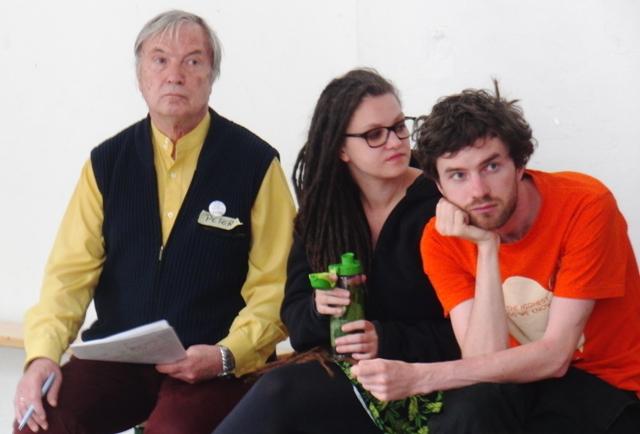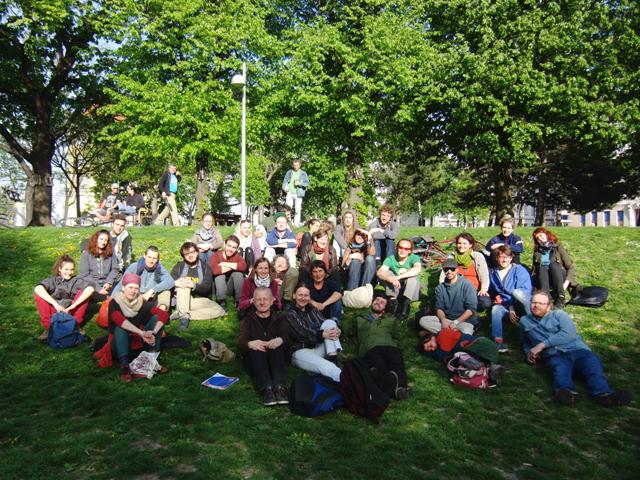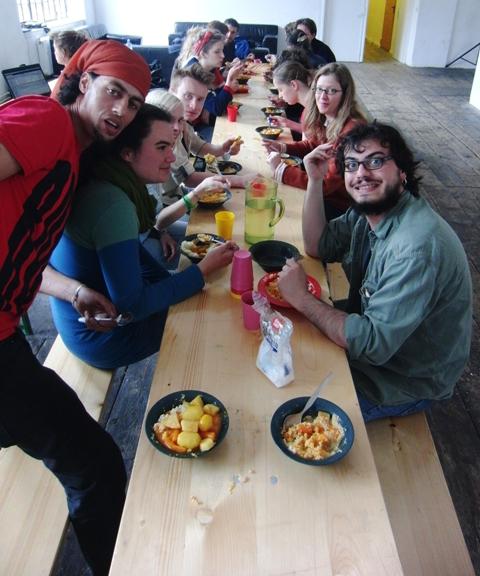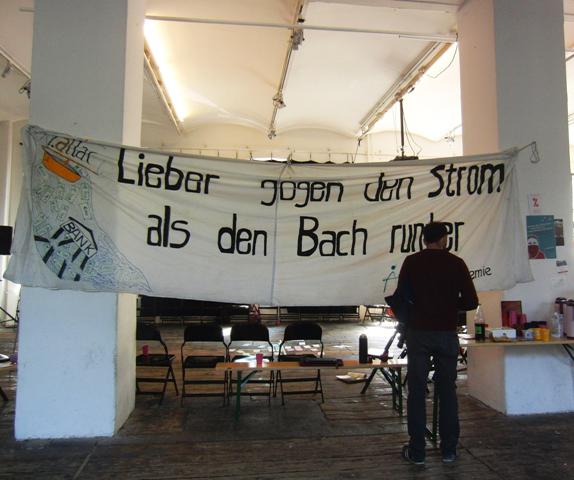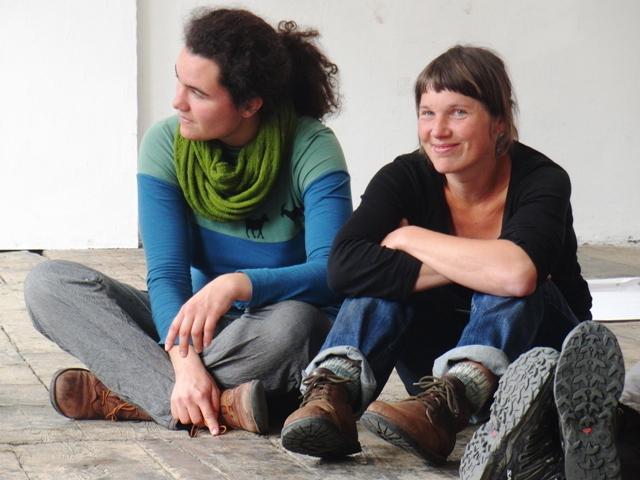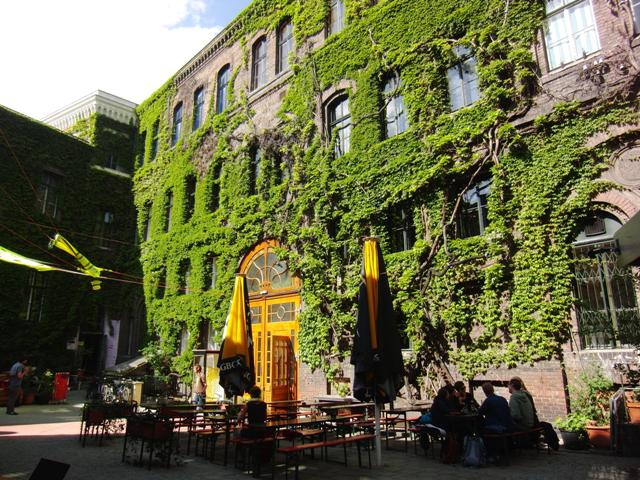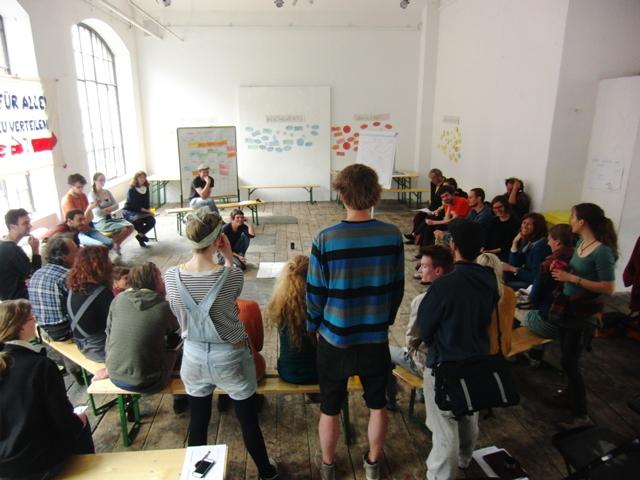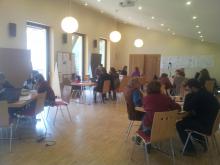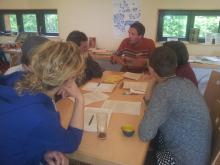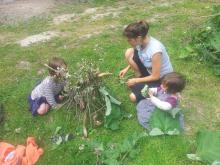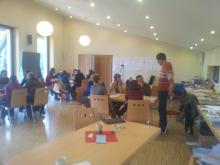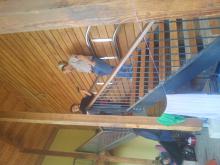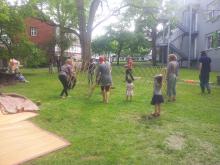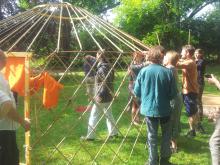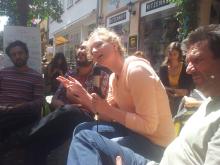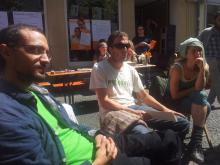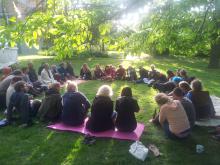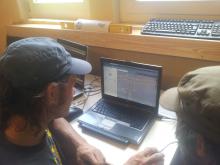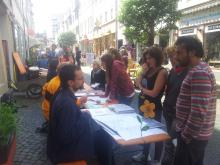Dear communards,
I decided to take the first step in sharing pictures from our nice course and here they are! If you are reading this on the e-mail, you obviously need to go online - and login - to be able to see them!
I'm sure you also have some nice pictures to share, so here's how to do it
- Visit the group site and click on the link on the right to upload media
- (optional, but really cool new feature) - below the textbox, click on "Add a Related Content paragraph" > Media Gallery
- Browse Attach Media (in the media gallery if you added it)
- Drag-and-drop or select as many files you want to upload
- Click next, wait for upload and publish your gallery!
If you want everyone on the course to get an e-mail notification (like you are getting for this one), make sure to choose to type the community building group on the notifications bar (before publishing).
Looking forward to seeing all your nice pictures!
Gualter
am 29. Juni um 18:00 findet die erste Mitgliederversammlung von
Transition Town Witzenhausen e. V. 2015 statt.
Viele kennen die "Stadt im Wandel" und auch einige unserer Projekte
wie das Transition Haus, die essbare Stadt, den Mehrgenerationengarten, die Pflückoasen,
Veranstaltungen und Seminare und vieles andere.
Aber vielen ist nicht bekannt, dass dahinter ein Verein steht, der sich weitere aktive Mitglieder und Fördermitglieder wünscht.
Aus dem Grund möchten wir die Mitgliederversammlung nutzen, um über unsere derzeitig wichtigsten Projekte zu informieren sowie über Möglichkeiten, sich aktiv in den Verein und Projekte einzubringen. In diesem Sinne möchten wir mit der Versammlung auch einen Ort der Begegnung schaffen, bei dem wir uns untereinander noch besser vernetzen können.
Wir freuen uns über euer Interesse an der Arbeit von Transition Town Witzenhausen e. V. und euer zahlreiches Kommen!
Ort:
Brückenstrasse 20
37213 Witzenhausen
29.6.2015,
18 Uhr Beginn mit Essen & Austausch
offizieller Beginn: 18:30 Uhr
offizielles Ende: 21:00 Uhr
Viele Grüße
Eure StadtwandlerInnen
By Electre Mauche
Heteronomy and autonomy constitute two key concepts in our understanding of contemporary capitalist societies. These concepts have been isolated and developed by Cornelius Castoriadis throughout his work, under the influence of both Marxism and psychoanalysis.
Heteronomy and autonomy lie on the same characterization of human societies as self institutionalized objects. What Castoriadis calls the self-institution of the society refers to the idea that far from constituting an already given, essentialist order, social and political institutions are the result of an institutionalizing, constructivist process, where the values and the norms they promote constitute and generate imagined narratives, created imaginaries. These instituted imaginaries become the underlying narratives of our whole societies on the collective level - as social and political structures -, as well as on the individual level of the social individuals who constitute a society.
Yet, this process of institution of the society, as far as it gets forgotten by the social individuals who were born in its already existing structures, tends to become heteronomous. The self-instituted imaginaries of the societies autonomize themselves from this constructivist process, so that they get perceived as unchallenged truths. Thus, the heteronomous individual is the individual who lives in and obeys to a society whom he does not challenge the norms.
Among these institutionalized heteronomous imaginaries, the neoliberal one constitutes the prominent imaginary of our societies. Hand to hand with this imaginary, technical progress and technology belong to the less challenged and less democratic narratives, as far as they have been depoliticized and presented as neutral processes of knowledge.
Challenging heteronomous narratives constitutes the condition of autonomy -understood as being able to inhabit the society and the world we are living in in a conscious, chosen and democratic way. In the context of degrowth, this means challenging the growth and development narratives while de constructing the society’s imaginaries and producing new pathways for understanding and inhabiting our world.
By Electre Mauche & François Schneider
The concept of hegemony has been introduced by Antonio Gramsci, an Italian philosopher of Marxist background, and developed in the critical thinking tradition as a key concept to understand the contamination of culture, medias and all spheres of the society by power and domination's relationships.
In Gramsci's thought, power and dominant forces are not limited to the political and institutional spheres, but tend to be diffused and reinforced through all the fields of human societies. Far from being a unilateral process, power and culture design and reinforce each other in a coextensive process, where medias play a crucial role.
Thus, the concept of hegemony breaks with the idea that culture - as well as taste, education and all the fields related to it - constitutes a neutral, apolitical sphere. In the contrary, culture promotes the narratives, the standards and the norms of the dominants: this way, they introduce them as natural and universal, while giving to structural inequalities and disparities a coherent narrative and acceptable genesis. As a result, society tends to adopt and naturalizes the dominant, hegemonic discourse, and reproduces these narratives and the inequalities they create as an unconscious and often perceived as politically neutral process. This critique of culture has been completed by Bourdieu through the ideas of legitimate culture and reproduction of the elites, while addressing the educational system and its criteria of distinction. Here, the taste – i.e. the good taste -, operates as a powerful tool to discriminate social classes and legitimate the supremacy of the dominants as the result of a natural process of selection.
Usually, the actors of this process of reciprocal institution and reinforcement of power and culture, are not aware of the political implications of the norms they promote. Bourdieu takes the example of teachers, who are usually convinced of the neutral character of their task. Yet, while discriminating good from bad pupils, they use as tool of discrimination the knowledge of the implicit and non-taught codes and values of the middle to upper classes. In the same way, the receptors of this discrimination process rarely tackle it as a political issue, but tend to interiorize and depoliticize the dominant's narrative.
In this process of diffusion of the hegemonic norms and discourse, needless to say that medias constitute privileged canals. While telling and reporting the news, they reproduce and impose the hegemonic perspective as exclusive, and naturalize dominants' power. Again, this process differs from a monolithic process: it is the place of a mutual and reciprocal institution.
Hegemony, though, can be opposed by concurrent, counter- discourses, challenging it and deconstructing its mechanisms and narrative patterns. Progress, growth and development hegemonic narratives are challenged by the degrowth theory. It is a debate if the counter narrative of degrowth would be a new hegemony. This brings us to the idea of degrowth as “diversal”.
- 64405 Aufrufe
